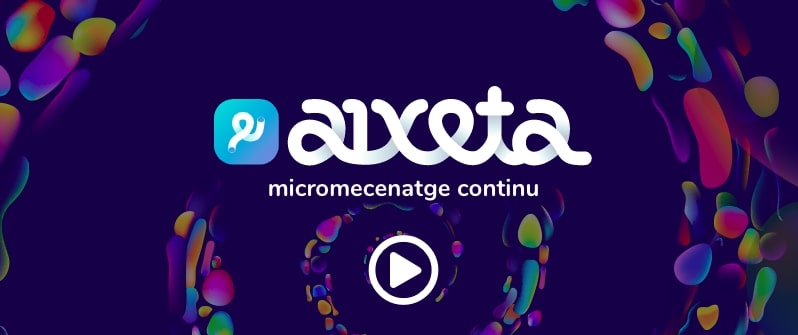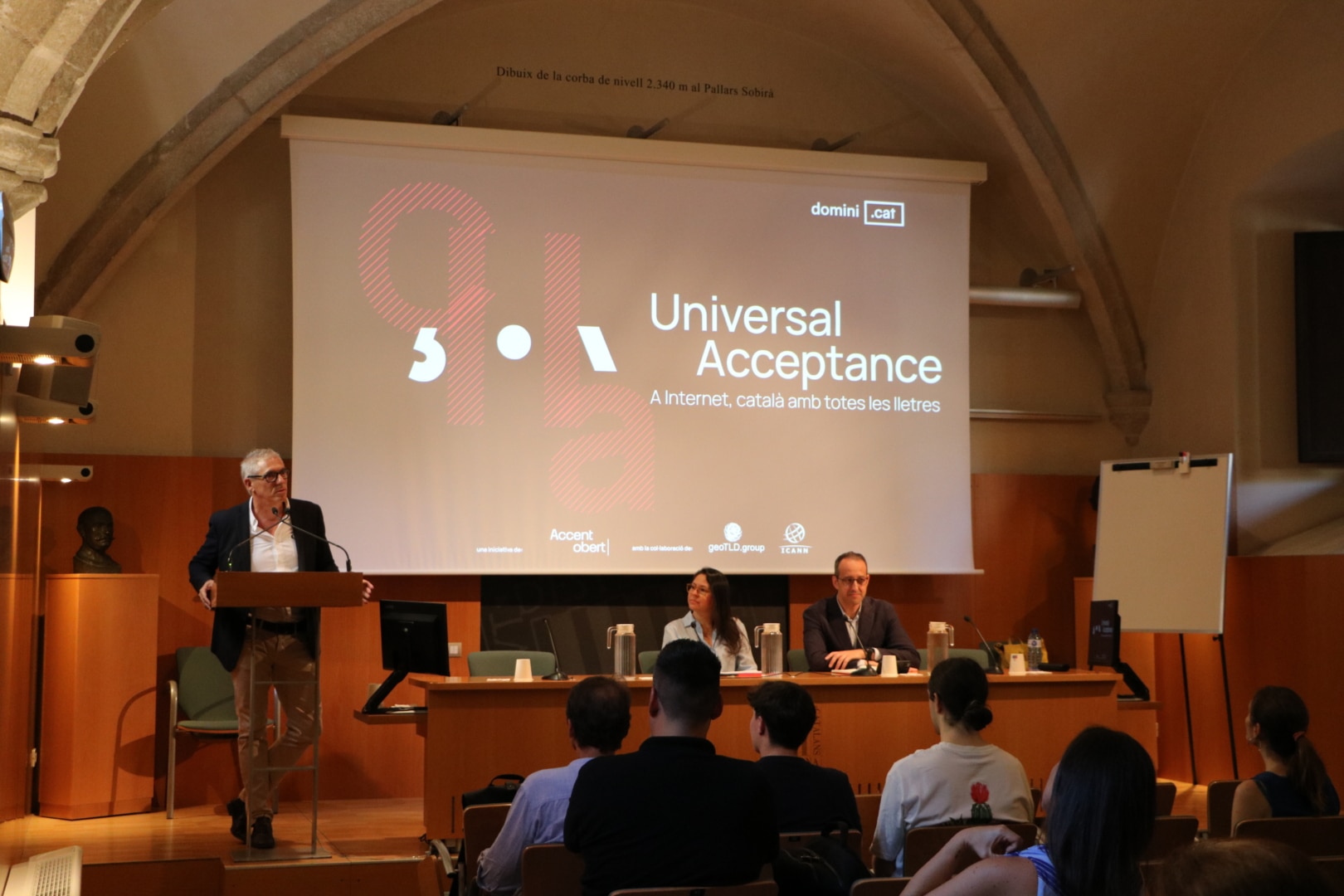Aixeta.cat: support for local creation drop by drop

We talked to Liz Castro, one of the promoters of Aixeta.
What is Aixeta?
Aixeta is a local, trilingual and non-profit Catalan version of Patreon. The idea is to connect the community with creative projects and give them funding through monthly subscriptions ranging from 2 to 5 euros or whichever amount. It not only aims to provide financial support, but also to make it easier to ask questions, to share knowledge with the relevant creator audience. The people who support the project are volunteers, except for the computer technician. We have been working for a little over a year and are slowly growing. There seems to be a growing interest in the project: musicians, writers, YouTubers … The way for a creator to monetise their content on YouTube is by reaching out to communities of speakers of major languages (Spanish or English): we offer the possibility of decoupling financial support from audience volume.
Right now, there are about 150 creators and 4,324 users on the platform. What role does each group play?
A creator is anyone who creates content: a writer, a documentary filmmaker, a musician, a YouTuber, a streamer … Users, sponsors, patrons or subscribers contribute something else. This is not the 14th century, where a single patron sponsored a creator. Although something similar exists nowadays in the form of companies. Aixeta’s idea is that you do not need to have a lot of money, you just need each community member to contribute something. A patron can subscribe to one or more of the creator’s pages and, in exchange for this small monthly contribution, get a number of rewards that can range from watching a YouTuber video before it is released, reading a chapter from a book before it is printed, getting the origin of a song explained by a singer-songwriter, being entitled to buy tickets before anyone else or accessing a WhatsApp group for subscribers only. The idea is to create communities around creators to allow them to make a living from what they do.
So, could we say that Aixeta works as a social network?
Connections between creators is not the part that works best, but the idea is to promote these connections. There are many creators who support other creators, but we are looking at how to make this more effective. Aixeta allows us not to have to wait for administrations to get the ball rolling one day and support culture. Though this must also be claimed, right? But for two euros a month you can do it yourself.
The area you work in is that of all Catalan-speaking regions, right? Miss Tagless, for example, is a creator from Valencia and part of Aixeta.
Exactly. We also have Cris Juanico, who is from Menorca; we have Sebastià Bennasar, who is a Mallorcan writer … And we do not limit ourselves to the Catalan regions. We do emphasise local culture, but if someone in Castile, Galicia or Andalusia wants to create a page, they are welcome to do so as well. The idea is that anyone from the European Union can participate in the future. The platform is trilingual: we want the pages’ interface to be viewed in Catalan, Spanish and English, whereas the contents can also be offered in those three languages. If you browse the English version, you will see the contents in English, and the same goes with Catalan.
What else makes you different from Patreon?
That we do not try to profit from creations and creators. We are committed to promoting local creation. That is why between March and May we offered two grants for creation, where, to be eligible, you had to have an active page for at least two months on Aixeta, have published at least twenty posts and have at least 50 followers. We have not recouped the initial investment, although we pay the expenses on a monthly basis, but we intend to promote this type of initiative. That the contributions of a 5% commission we charge in order to fund servers or the computer technician return to the creators. We also offer to anyone who wants to subscribe as a sponsor of Aixeta: we have our own page, as if we were just another creator.
How do you relate to existing initiatives, such as Valentubers or Canal Malaia?
We do not have a definite business relationship, but we have talked to them and other initiatives to see where we can find synergies. I think Malaia is not yet looking for ways its creators can make money, so Aixeta could be a formula for them to promote their pages and create their content.
Why did you choose a .cat domain?
One of the reasons we created Aixeta is because, at Patreon, almost all content is from the US. We believe that culture is something rooted in the local world, and the culture here is mainly Catalan-speaking. The very name of the platform is in Catalan, which is already a declaration of intent. The .cat domain was the one that best suited the project philosophy.


